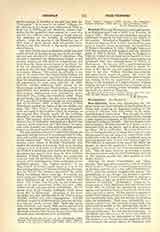

Freeman, WILLIAM, VENERABLE, priest and martyr, b. at Manthorp near York, c. 1558; d. at Warwick, August 13, 1595. His parents were recusants, though he conformed outwardly for some time to the religion of the country. Educated at Magdalen College, Oxford, he took his degree as B.A. in 1581, then lived for some years in London, where he witnessed the martyrdom of Edward Stransham in 1586. Strongly impressed with this example, he left England and was ordained priest in 1587 at Reims. Returning to England in 1589, he worked for six years on the borders of Warwickshire, and in his interesting life many persons are mentioned who were contemporaries or friends of Shakespeare. In January, 1595, a special commission was sent down to Stratford-on-Avon to search the house of Mrs. Heath, who had engaged his services as tutor to her son. William Freeman was arrested, and spent seven months in prison. He denied his priesthood, but also refused all friendly offers to escape, not wishing to lose his opportunity of martyrdom. Owing to the treachery of a fellow prisoner, William Gregory, he was at last sentenced as a seminary priest, and in spite of a touching protest of loyalty, suffered the death of a traitor at Warwick.
J. H. POLLEN

